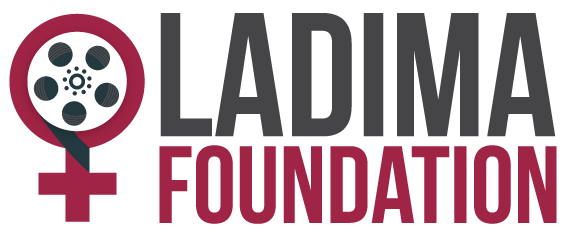Pictured: A scene from Tug of War (Tanzania)
The University of KwaZulu-Natal’s Centre for Creative Arts (CCA) will host the Durban International Film Festival (DIFF) from 21 to 30 July. The 43rd edition of the festival programme speaks to the curatorial theme of: “Adaptation, Survival and Sustainability”. The festival will present a carefully curated selection of South African premieres, screening virtually on www.durbanfilmfest.com and in person at CineCentre Suncoast Casino.
On 21 July, DIFF2022 opens with the live and virtual screening of 1960, directed by Michael Mutombo and King Shaft. You’re My Favourite Place by Jahmil X.T. Qubeka will close the festival on 29 July, after film-lovers still have the opportunity to see the film online on 30 July. The awards will also take place virtually on 30 July.
Festival manager, Valma Pfaff, is proud to announce the films in competition that are diverse but have a common thread of adaptation and instilling hope for the future.
“The past two years have proven to be trying times, and the narratives of many of these films offer us a reflection on these sometimes desperate moments. At the same time, filmmakers also share stories of hope and optimism, bringing to life the way people support each other while carefully looking forward to a brighter future.” Says Pfaff
The organisers of DIFF have this same careful optimism about the future of film.
“The industry has changed, and offering the DIFF as a hybrid festival felt like the best solution to cater for our audiences in different ways. We are beyond excited to be able to invite our audience in person to the cinema again. We also acknowledge the many opportunities to keep expanding our audiences virtually.” Says Centre for Creative Arts Director Ismail Mahomed.
Documentaries in the 2022 Competition:
- Adam & Ida, a German film directed by Jan Tenhaven, tells the story of Polish-Jewish twins who survived the Holocaust.
- African Moot, directed by Shameela Seedat, shares the story of the competitors in the prestigious African Human Rights Moot Court Competition.
- Batata, directed by Lebanese -Syrian filmmaker Noura Kervokian follows the plight of Syrian Migrant workers.
- From Germany hails Black Mambas, directed by Lena Karbe, follows an all-female anti-poaching unit in Kruger National Park.
- Forgotten Dreams, directed by Marwa El Sharkawy from Egypt, follows the story of a young, talented, colloquial poet who discovers he has kidney failure.
- Girl, Taken, from South Africa and Ireland, directed by Simon Wood and Francois Verster, tells the incredible story of two parents whose baby was stolen from Groote Schuur Hospital in Cape Town, who miraculously found her 17 years later, and who then lost her again.
- German documentary; Kash Kash, Feathers without Wings, directed by Lea Najjar, tells the story of how her hometown, Beirut, was torn apart by a corrupt political elite, anti-government protests, and one of the biggest explosions of the 21st century.
- Umkhumbane In Me, directed by Malcolm Sonnyboy Nhleko from South Africa, shows us life through the eyes of Madala “Bafo” Kunene. One gets a raw glimpse of the painful moments that defined his musical journey.
- Music Is My Life, directed by Mpumi Supa from South Africa, is the official story of African icon Joseph Shabalala, who rises to international fame with his band Ladysmith Black Mambazo.
- N-Ice Cello, directed by Corrado Bungaro from Italy, tells a story from the heart of a glacier in the Italian Alps in which an American sculptor shaped a cello entirely made of ice.
- No Simple Way Home, directed by the South-Sudanese Akuol de Mabior, is an intergenerational conversation that charts the struggle to reconcile family and country.
- No U-Turn, directed by Nollywood filmmaker Ike Nnabue goes back to the path he took at the dawn of his adult life when he wanted to reach Europe.
- Portraits Of The Future, directed by Virna Molina from Argentina, paints a picture of how before the pandemic, filmmaker Virna Molina was shooting a film about the resistance of the subway delegates in Buenos Aires that was interrupted by “lockdown”.
- Taamaden, directed by Seydou Cissé from Cameroon, follows three young immigrants from West Africa who take the viewer into the world of African spirituality in the age of new technologies.
- In The Delights, director; Eduardo Crespo hailing from Argentina, shows how more than 120 kids live together in Las Delicias agrotechnical boarding school in the Argentine countryside.
- Wind Blows In The Border, by directors; Laura Faerman and Marina Weis from Brazil is about the fight for ancestral lands.
Feature Films in the 2022 Competition:
- 1960, directors; King Shaft and Michael Motumbo from South Africa show what happens when the remains of an apartheid-era policeman are discovered 60 years after he went missing; a retired singer revisits her past to help with the investigation. But how much does she know, and what is she holding back?
- 2 Thirds of a Man, directed by Earl Shaun Kopeledi from South Africa, draws an image of how Justin returns to Cape Town as a first-year student at Rocklands University after spending most of his teenage years living in Beaufort West, where his mom took up a teaching job after the untimely death of his father, a musician on the brink of success.
- Bangarang, directed by Robin Odongo from Kenya, is inspired by actual events. Otile, a poor ‘bodaboda’ rider, is jobless ten years after graduating with a second-class honours degree in automotive engineering. When election violence erupts after the disputed Kenyan presidential elections, Otile leads other rioters in the streets of Kisumu.
- Bantú Mama, directed by Ivan Herrera, follows, after being arrested in the Dominican Republic, an Afropean woman who escapes and is sheltered by three minors in a dangerous district of Santo Domingo.
- Dealer, directed by Jeroen Perceval from Belgium, let’s one in on a story about a fourteen-year-old drug runner Johnny, staying in a home for young people from challenging backgrounds. He dreams of a better life.
- Donkeyhead is a 2021 Canadian comedy-drama film written and directed by Agam Darshi in her directorial debut. The plot follows Mona (37), a failed writer who carves out a life of isolation while caring for her ailing traditional Sikh father
- Good Madam, directed by Jenna Cato Bass, is a psychological thriller and a commentary on the contemporary state of race relations in South Africa following the end of apartheid.
- Juwaa, directed by Nganji Mutiri and shot in Belgium and the Congo, is a powerful drama based on African characters rarely seen on screens. Years after a traumatic night, a son and a mother slowly reveal all the layers that redefine what they mean to each other.
- Klondike, directed by Maryna Er Gorbach from Ukraine, follows July 2014, when expectant parents’ nervous anticipation of their first child’s birth is violently disrupted as the vicinal crash of flight MH17 elevates the forbidding tension enveloping their village.
- Public Toilet Africa, director; Felix (Kofi) Ofosu-Yeboah from Ghana follows after several years of her disappearance; a reticent Ama returns to the city where she was gifted to a white art collector as a little girl. Her quest to even the score results in a heist-gone-wrong that sends her and an ex-lover on a lonely country road.
- Ring Wandering, director; Masakazu Kaneko from Japan captures a story in central Tokyo, where a young man named Sosuke aspires to be a manga artist.
- Streams, directed by Mehdi Hmili, hailing from Tunisia, Amel works in a factory in Tunis. She lives with her alcoholic husband Tahar, a former local football player, and their only son Moumen, a talented teenage football goalkeeper.
- Tug of War, directed by Amil Shivji from Tanzania, brings a coming-of-age political love story set in the final years of British colonial Zanzibar. Denge, a young freedom fighter, meets Yasmin, an Indian-Zanzibari woman, in the middle of the night as she is on her way to be married.
Films will compete for titles such as Best Feature Film and Best Documentary, Best Performer and Best Cinematography. The jury consists of industry specialists from over the globe.
Programme and details
DIFF 2022 will be presented in a hybrid edition with online screenings at www.durbanfilmfest.com and a diverse live programme at CineCentre, Suncoast Casino, Durban. Tickets for all live screenings are accessible on www.cinecentre.co.za. The entire festival programme can be seen on www.durbanfilmfest.com
The 43rd edition of the festival is produced by the University of KwaZulu-Natal’s Centre for Creative Arts, in partnership and with the support of KZN Film Commission, the National Film and Video Foundation, KZN Department of Arts & Culture, Avalon Group and other valued funders and partners.


